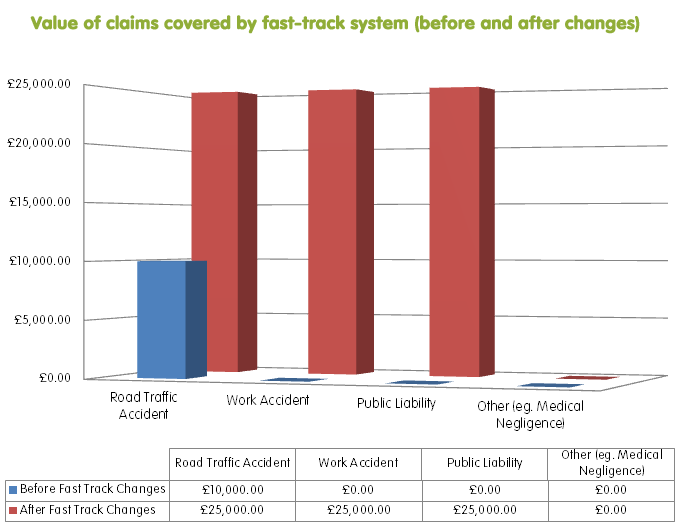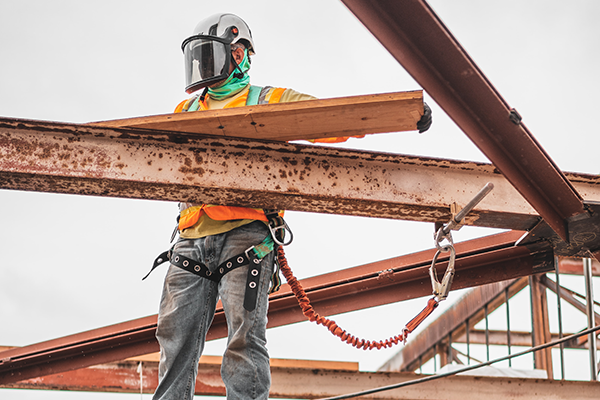Accidents at Work
NoWinNoFee.com is a claims management company that helps people claim compensation for an accident or injury that wasn't their fault
With no win no fee agreements (also known as a Conditional Fee Arrangements, or CFAs), there are no upfront legal fees, which means anyone who has been involved in an accident that wasn’t their fault can gain access to justice without any financial risk. Your solicitor only gets a fee if your claim is successful. If your claim isn't successful, you won’t pay your solicitor any legal fees.
If your case is successful, typically you will pay 25% (including VAT) of your compensation to your solicitor, although they will discuss any fees before starting your case. To ensure your claim is risk free, your solicitor may take out an insurance policy on your behalf. If you terminate the agreement, you may have to pay fees for the time already spent on your claim, or due to: lack of cooperation, misleading your solicitor, missing medical or expert examinations, or not attending court hearings.
There are some instances where you are not required to use the services of a claims management company, and are able to claim yourself, for free, directly via the relevant ombudsman/compensation scheme. These include:
- Criminal injuries: The Criminal Injury Compensation Authority (England, Wales, and Scotland) or the Criminal Injury Compensation Scheme (Northern Ireland)
- Minor road accidents: The Official Injury Claim Portal
- Accidents involving uninsured drivers: The Motor Insurers' Bureau
Accidents at Work
Call now on 0800 234 6438
What is an accident at work?
An accident at work is an unexpected incident that happens to an employee while they’re carrying out their work duties or while they’re at their employer’s premises. It can cause injuries, illnesses, or even be fatal. For instance, an employee might slip and fall on a wet floor, get hit by a falling object, or be injured by machinery or equipment. There are also cases where employees get exposed to harmful substances, which can be dangerous to their health.
In recent times, the average working environment has become a safer place, however, according to the Health and Safety Executive (HSE), there were a total of 646,000 self-reported non-fatal workplace injuries in Great Britain in 2019/20. This includes both non-fatal injuries that resulted in an absence from work of seven days or more and those that were reported but did not result in an absence.
Employers have a duty of care towards their employees and must take measures to prevent accidents at work. They should provide a safe working environment, proper training, and adequate equipment to ensure their workers’ safety. It’s crucial that employers take proactive steps to prevent accidents and protect their employees’ wellbeing.
Therefore, if an accident at work is caused due to negligence, you have the legal right to pursue compensation for your injuries, on a no win no fee basis.
To find out more about making a personal injury claim for a workplace injury, call 0800 234 6438 today and speak with a trained legal advisor for free. During your free initial consultation, they’ll listen to what happened to you and if they believe you have a workplace accident claim to make, they’ll partner you with a specialist personal injury solicitor who will work with you on a no win no fee basis to secure you the compensation you deserve.
Understanding accidents at work claims
Experiencing an injury at work can be a painful and traumatic event, and it’s understandable to feel overwhelmed and uncertain about what to do next. However, it’s important to know that you have rights and options available to you. Understanding accidents at work claims is not just a legal matter, but a way to protect yourself and others from similar harm in the future.
If you’ve suffered an injury at work, seeking compensation is not just about getting financial help for your recovery. It’s also about holding your employer accountable and encouraging them to take measures to prevent similar incidents from happening again. By seeking compensation, you may be able to prevent future accidents and injuries from occurring to other colleagues, which can ultimately create a safer work environment for everyone.
Moreover, claiming compensation can help cover the costs of medical treatment, lost wages, and other expenses that arise from your injury, allowing you to focus on your recovery without financial burden. It’s essential to seek professional advice and guidance throughout the process, as it can be complex and overwhelming.
Remember, you are not alone, and you have the right to protect yourself and others from harm in the workplace. By seeking compensation for your injury, you are not only looking after yourself but also making a positive impact on the safety of your colleagues and future employees.
What are the most common types of accidents and their injuries at work I can claim for?
Experiencing an accident at work can be a life-changing event that can have serious physical, mental, and financial ramifications. The good news, though, is you may be entitled to claim compensation for your injuries, depending on the circumstances of your work compensation claim.
While the type of accidents at work you can claim for are diverse, the most common accident at work claims we see range from simple slips and trips, to major injuries caused by industrial machinery.
Some of the most common types of accidents include:
- Slip, trip and fall accidents
- Machinery accidents
- Manual handling accidents
- Burns and scalds
- Electrical accidents
- Assaults and violence at work
Common workplace injuries resulting from these accidents include:
Slip, trip and fall accidents
- Soft tissue injuries, such as sprains and strains
- Fractures and broken bones
- Head injuries, including concussions and serious brain injury
- Spinal cord injuries, including paralysis
- Internal injuries, such as organ damage or internal bleeding
- Cuts, bruises, and lacerations
Machinery accidents
- Crush injuries, including amputations and severe bone fractures
- Lacerations and cuts from sharp or moving parts
- Burns and scalds from hot surfaces or materials
- Eye injuries, including partial or complete blindness
- Noise induced hearing loss
Manual handling accidents
- Strains and sprains from lifting heavy objects or repetitive movements
- Back injuries, including herniated discs and spinal cord damage
- Shoulder injuries, including dislocations and torn rotator cuffs
- Neck injuries, including whiplash and nerve damage
- Foot and ankle injuries, including fractures and sprains
Burns and scalds
- First-degree burns, which cause redness and mild pain
- Second-degree burns, which cause blistering and more severe pain
- Third-degree burns, which can cause tissue damage and scarring
- Inhalation injuries from smoke or chemical exposure
- Electrical burns, which can cause internal injuries and damage to organs
Electrical accidents
- Electrical burns, which can cause tissue damage and scarring
- Nerve damage, including paralysis or loss of sensation
- Cardiac arrest or heart damage
- Internal organ damage
- Falls or other injuries resulting from being shocked
Assaults and violence at work
- Soft tissue damage, such as bruises, cuts, and lacerations
- Head injuries, including concussions and traumatic brain injuries
- Broken bones and fractures
- Emotional trauma, including anxiety, depression, and post-traumatic stress disorder
- Death
If your job involves driving and you are injured in a road traffic accident, you could also be entitled to claim compensation if someone else was at fault. Seeking compensation is not just about financial gain, but also about securing justice and ensuring that employers take responsibility for their actions and create a safer work environment for everyone.
Whatever the circumstances of your accident, it’s essential to seek professional advice and guidance from a trusted source as soon as possible.
To find out more about making a work accident compensation claim, call 0800 234 6438 for free today and speak with a trained legal advisor. They’ll be able to provide more guidance on whether you’re eligible to make an accident at work claim, and if you are, advise you of what the next steps are.



